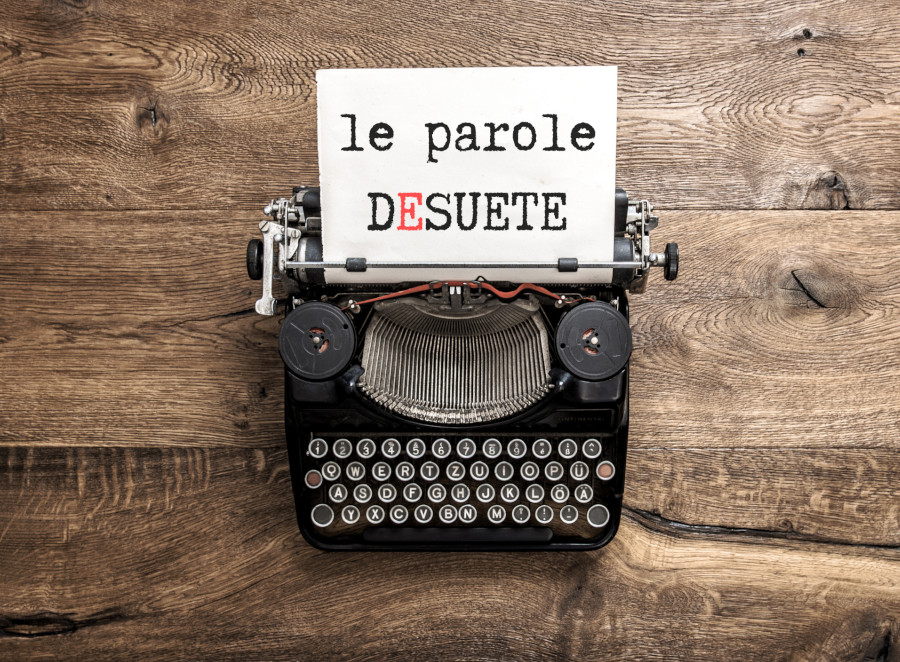5+1 obsolete words of the Italian language

From 'anomia' to 'unqua' a journey into the (preservation) of past Italian.
Like any language, Italian (which is full of words) evolves and grows. And like any language, even in Italian there are words that get lost, leave common usage, are forgotten and then... die. Yes, because for a word, death is when no one remembers it and knows what it means. A few years ago, the publisher of one of the most popular vocabularies of the Italian language launched a hashtag to bring endangered words back to life: #paroledasalvare.
There are several words in the 'dimenticatoio' (a term for the imaginary place where all forgotten things go) of the Italian language. We have chosen five, one for each vowel, and you can find them here so you can remember them, use them and give them new life.
However, before that, there is another word that deserves a little thought: “desueto”. It is an adjective that describes words no longer in use. It originates from the Latin desuetus, meaning loss of habit, a term from which both “desueto” and “dissueto” are derived. They are synonyms but, if one really wants to check for differences, the former word can be used to indicate something that has not been used for a long time; the latter instead can indicate a person no longer used to doing something.
Five “desuete” words of the Italian language
- anomia
this word has Greek roots and indicates a situation where laws or rules are lacking. In medical and psychological circles, it is used to indicate a language difficulty, namely the inability to call up the names of objects or people. In social sciences, “anomia” is said to be that condition of bewilderment that some people experience when the rules that govern social coexistence crumble, lose their effectiveness, and it is difficult to find one’s spot in a social system that is changing and is in search of new laws
- eristico
This is also a word that has its origins in ancient Greece (“eristic” is linked to the concept of arguing) and is used to indicate subtle (but not solid) reasoning that has the sole purpose of convincing. When the sole objective of taking part in a discussion is to prevail, the discussion itself becomes a battle and the arguments end up being “eristiche”
- ingramagliare
this word means dressing for mourning, that is in plain and dark colours. The origin of this word can be traced back to the word gramalla, which in Spanish means an old, foot-length robe, from which the Italian “gramaglia” (mourning dress) derives
- obnubilare
this word of Latin origins is particularly fascinating because it literally means “to cover with clouds”. It is also used to refer to someone whose senses are “annebbiati”: a person who is “obnubilata” is someone who does not have full - albeit momentary - command of his or her mental capacity
- unqua
the literal meaning of unqua is “never”. With the exception of a few poetic uses in the distant past of Italian literature, its use is so sporadic that it is to be considered as a word now close to oblivion. It is derived from the Latin ŭnquam.
The obsolete words of the Italian language: examples of phrases
- anomia
"In this age of change, young people are in crisis, living in anomia (bewilderment)"
- eristico
"I give up on this discussion, your reasoning is eristico (misleading)"
- ingramagliare
"After the death of her dog she lived ingramagliata (dressed in mourning) until the end of her days" - obnubilare
"By the third glass of wine I felt obnubilato (confused)"
- unqua
"In your years as a sailor unqua vedesti (you never saw) a whale?".




